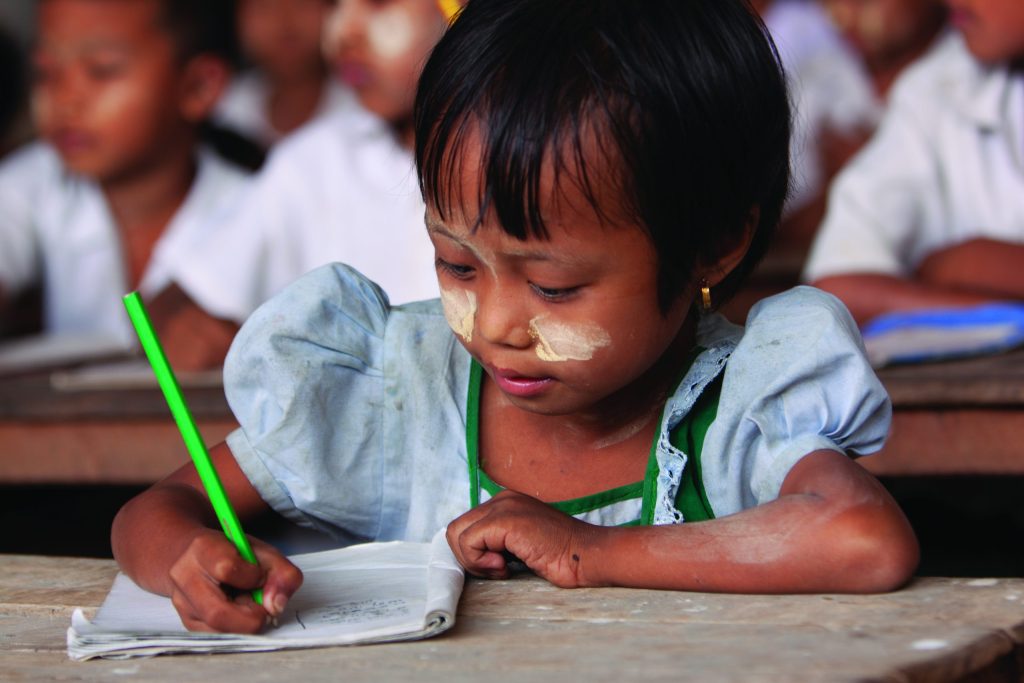
| In Myanmar there is an urgent need to expand education services and improve the quality of education provision in rural areas. The rural urban divide is stark with significant differences in pre-primary enrolment (urban 80.65%; rural 63.56%), primary completion (urban 87.9%; rural 77.6%) low transition to middle school (urban 93.3%; rural 70.7%) and extremely low upper secondary school completion (urban 33%; rural 18%). According to 2015 Census data, almost half (1,305,906) of all OOSC reside in ethnic minority states and regions and almost a quarter (23%) of children in these areas are OOSC. The CASE2Learn project, is being implemented by the ADRA which has over 35 years of experience delivering education projects in Myanmar and its local implementing partner Rural Indigenous Sustainable Education (RISE). CASE2Learn is an extension of the CASE+ pilot project, and it aims to improve and expand access to Indigenous education services (reaching 496,830 children), improve school quality standards and basic education services, increase engagement between RISE and education actors, schools are supported to have effective leadership and management, Indigenous teachers are equipped with basic teaching competencies to support student learning, relevant programs are in place to support out of school children/youth/illiterate women, and parents and communities are actively engaged in school based activities. |
Ending: 31/05/2024
